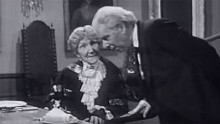11 things Germany does better than anywhere else 德國無人能敵的11件事!
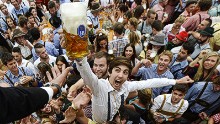
(CNN)-Cars.
Efficiency. Leather shorts.
Germany is
known around the globe for excelling at a variety of things.
Germans
themselves are known as friendly and welcoming people, even if everyone thinks
we have a nonexistent sense of humor.
(CNN)-車子,效率,皮短褲。
德國以擅長各式各樣的事物聞名全球。
德國以擅長各式各樣的事物聞名全球。
即使所有人都認為德國人沒有幽默感,但是德國人們認為自己友善且樂於迎接所有人。
The
country also boasts two millennia of history that, for good and bad, shaped the
world as we know it today.
But
there's much more to this large country sitting in the middle of Europe than
stereotypes and war jokes.
Here are
11 things that make Germany special.
這個國家還以有兩千年歷史而自豪,不論好壞,都造就了今日我們所認識的德國。
但是比起刻板印象和戰爭笑話,這個座落於中歐的國家,還有更多值得我們去發現的事。
以下是11件造就德國與眾不同的事。
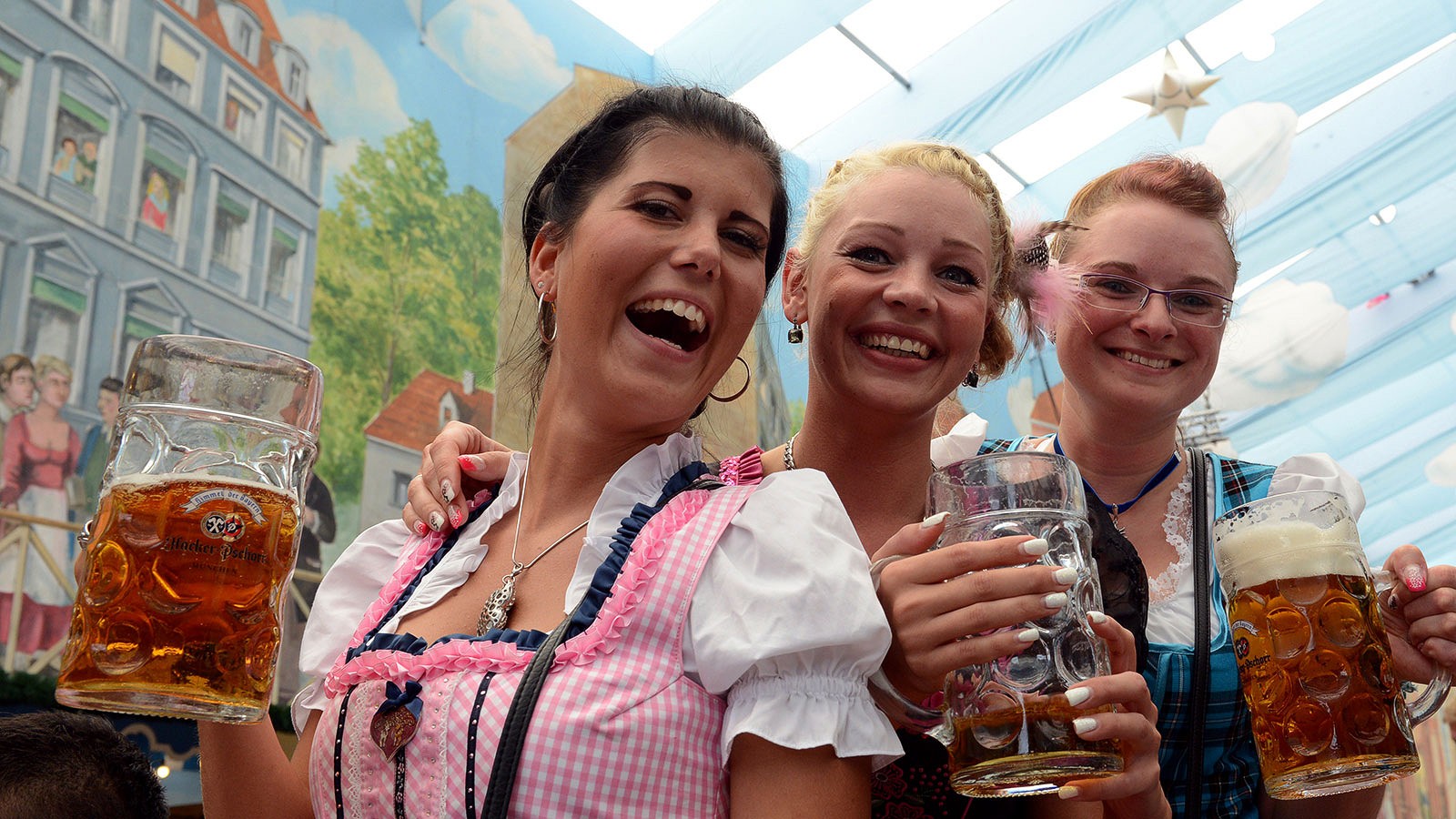
1.
Mixing water, barley and hops
Germans
drink, breathe, eat and sleep beer.
OK, mainly
we just drink the beer.
There are
more than 1,300 breweries and 5,000 different brew brands helping us drink more
beer per person than any other European nation, apart from the Czech Republic.
1.
把水、大麥和啤酒花混合在一起
德國人吃喝、呼吸和睡覺都離不開啤酒。
好吧,我們主要都在喝啤酒。
因為有超過1,300間的釀酒廠和5,000種不同的啤酒品牌,使得我們喝的啤酒比其他歐洲國家的每一位人民還多,除了捷克。
And, yes,
we know your country now has a ton of new craft breweries.
We don't
care.
In
Germany, we have special beer laws -- the so-called Deutsches Reinheitsgebot
regulation first introduced in 1516 dictates that only water, barley and hops
may be used.
AND we
have a ton of new craft breweries.
然後,沒錯,我們知道你們國家現在有很多新的工藝酒廠。
但我們不在乎。
在德國,我們有很特別的啤酒法令,於1516年時首次頒布,稱為德國「純淨法」,
其規定只能使用水、大麥和啤酒花。
以及,我們有很多新的工藝酒廠。
2. Getting
from A to B
With so
many great car producers, you could be forgiven thinking we're all driving
around in BMWs, Audis and Mercedes.
But while
the rest of the world is drooling over our premium autos -- or in the case of
Volkswagen owners, scratching heads at emission levels -- we're usually taking
the train.
1.
從甲地到乙地
因為有著很多優秀的汽車製造商,所以你們會認為我們到處都開著BMW、奧迪和賓士也是情有可原的。
但當世界其他角落痴痴地望著我們的高檔車時,或是就福斯汽車的老闆來說,正為排放標準搔首苦惱時,我們經常搭火車。
Germany's
excellent rail network is mostly still state-owned, with Deutsche Bahn, or DB,
operating the majority of trains on both passenger and freight routes.
About
seven million relatively happy passengers and 1,138,000 tons of freight daily make
26,000 train trips on its 33,000-kilometer network.
德國優秀的鐵路系統大多仍是國有的,稱作德國鐵路股份公司,或是DB,經營大多數的鐵路,包含乘客及貨運路線。
在其3萬3千公里的鐵路系統,每天約有7百萬相當開心的乘客及1百13萬8千噸貨運,共創造出2萬6千趟鐵路旅程。
Despite
all that traffic, German trains are generally on time -- or at least within
five minutes of schedule.
There are
high-speed ICE trains linking major towns and cities at up to 300 kph.
You can
try doing that in a BMW -- some of our autobahns have no official speed limit
-- but you'll be taking the train home when the engine gives up.
跟其他交通不同的是,德國的火車通常都很準時,或是最多比表定時間遲五分鐘。
還有德國的高速列車,連接主要城鎮,時速高達300公里。
你可以試著以那個速度開BMW (我們的某些高速公路沒有官方速限),但是等你搭火車到家時,引擎也報銷了。

3. The
life aquatic
When
Germans aren't obsessing about beer, they're obsessing about water.
Not to
drink, but to get out on, sailing, surfing, waterskiing, swimming, kayaking and
canoeing and windsurfing -- in any weather.
And no
wonder.
1.
生活水質
德國人除了為啤酒著迷以外,更對水著迷。
不是用來喝的,而是跳進去划船、衝浪、滑水、游泳、橡皮艇和划獨木舟,不論在什麼樣的天氣。
這也難怪。
The
country has more than 12,200 scenic lakes, most of which are accessible for any
activity throughout the year.
Some of
the best Alpine scenery can be seen from the shores of Bavarian lakes like the
Konigssee or Tegernsee.
這個國家有超過1萬2千2百個優美的湖泊,而且大部分的湖泊全年開放給任何活動。
從巴伐利亞湖邊還可以欣賞部分絕美的阿爾卑斯山風景,像是國王湖或是泰根塞湖。
Mecklenburg-Western
Pomerania and Brandenburg are also crammed with lakes -- there's even a hiking
trail connecting all 66 lakes in Brandenburg.
A European
ranking published in 2013 showed that Germany has one of the highest numbers of
"excellent" lakes and rivers for swimming.
If all
that exercise builds up a thirst for beer, better still.
在梅克倫堡-前波莫瑞和布蘭登堡也富含了許多湖泊,甚至還有一條登山路線連接布蘭登堡66條湖泊。
在2013年公布的歐洲排名中顯示出德國有最多適合游泳的超讚湖泊和河流。
如果說所有的運動都是建立在對啤酒的渴望,那最好不要停止。
4. Taking
our clothes off in public
When it
comes to getting naked in nature, no other nationality comes close.
We can't
blame you for keeping your distance, just don't judge us.
4. 在公共場合脫掉我們的上衣
當提到自然地光著身子,沒有其他國家比我們更符合了。
我們不會怪你們想保持距離,但請你們也別評論我們。
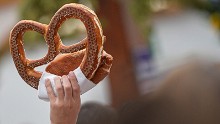
5. Baking
bread
Some
French wine connoisseurs can tell simply from sniffing an uncorked bottle not
only where the grapes were grown but which direction the vineyard slope was
facing.
It could
well be the same in Germany with bread.
5. 烤麵包
有些法國的酒收藏家可以很簡單的從嗅覺辨別出一瓶開封後的酒的葡萄生長地,甚至是其葡萄園坡度所面對的方向。
同樣地,在德國的麵包也可以如此。
Bread here
is more than just a part of the daily meal, it's part of the culture.
Each
region has its own variations -- there are more than 1,500 -- ranging from dark
and heavy rye breads in the north to lighter wheat breads in the south.
在這裡,麵包不只是日常餐點的一部份,更是文化的一部份。
Germans
eat an average of 87 kilograms of bread a year each and there's a bakery for
every 2,100 people.
And yes we
know all that carb loading is taking its toll on our waistlines.
But we're
still getting naked in nature.
德國人一年平均吃掉87公斤的麵包,而每2,100人就有一家麵包店。
然後,沒錯,我們都知道所有攝取的碳水化合物都反映在我們腰圍的數據上。
但我們還是會自然地光著身子。
6.
Bureaucracy
It
shouldn't really come as surprise that Germany has an abundance of laws
controlling almost every aspect of life.
And while
this amount of over-regulation might seem to make us inflexible, it's what
gives us our reputation for being efficient.
This love
of rules manifests itself in many ways.
6. 官僚制度
在德國有充足的法律掌管生活各個面向,這真的不用感到驚訝。
雖然說監管過度的量似乎使我們不懂變通,卻也給了我們有效率的好名聲。
對於這些規範的熱愛顯現在很多地方。
Crossing
the street as a pedestrian at a red traffic light is frowned upon and anyone
caught by the police can be fined.
We're also
sticklers for waste separation.
Every
house has at least four different garbage cans: plastic, paper, organic waste
and general garbage.
當行人在紅燈時穿越馬路是不被允許的,任何被警察抓到的人都會被罰款。
我們也非常注重垃圾分類。
每一戶家裡至少都有四個不同的垃圾桶:塑膠、紙類、有機廢料和一般垃圾。
Placing
trash in the wrong can risks a fine.
To keep
all that potential for social chaos under control there's even a government
office called Ordnungsamt, which literally translates to "office of
order."
Laugh all
you like, but that's one way we achieve some of Europe's lowest
unemployment levels.
把垃圾放錯垃圾桶可是會被罰款的。
為了讓社會混亂的可能都在控制之下,甚至還有一個名為秩序局的政府機構,字面上的翻譯就是管秩序的。
你們就儘管笑吧,但這可是我們達到歐洲少數國家失業率最低的原因。
7. Moving
everything
When
offered for rent, German houses and apartments are never furnished.
That means
that not even the kitchen or bathroom equipment is a compulsory item.
So when
Germans move they move with all their furniture -- including oven, fridge,
countertops, cupboards and even the sink.
7. 搬運任何東西
德國的房子和公寓提供租借時,從不配有傢俱的。
這表示甚至連廚房或衛浴設備都不是必備的。
所以當德國人搬家時,他們會搬走所有的傢俱,包含烤箱、冰箱、廚具、櫥櫃,甚至是水槽。
Moving
days are somewhat of a national pastime, often involving friends and family
instead of professionals.
That means
laying on enough beer and food to make sure everyone stays until the place is
emptied.
And, of
course, the last piece of trash has been filed in the correct can.
搬家的日子相當於他們國內的一種消遣,時常找來朋友和家人幫忙,而不是專業的搬家公司。
這意味著會準備足夠的啤酒和食物,確保每個人都會等到房子空了才離開。
然而,想當然地,最後一個垃圾要丟在正確的垃圾桶內。
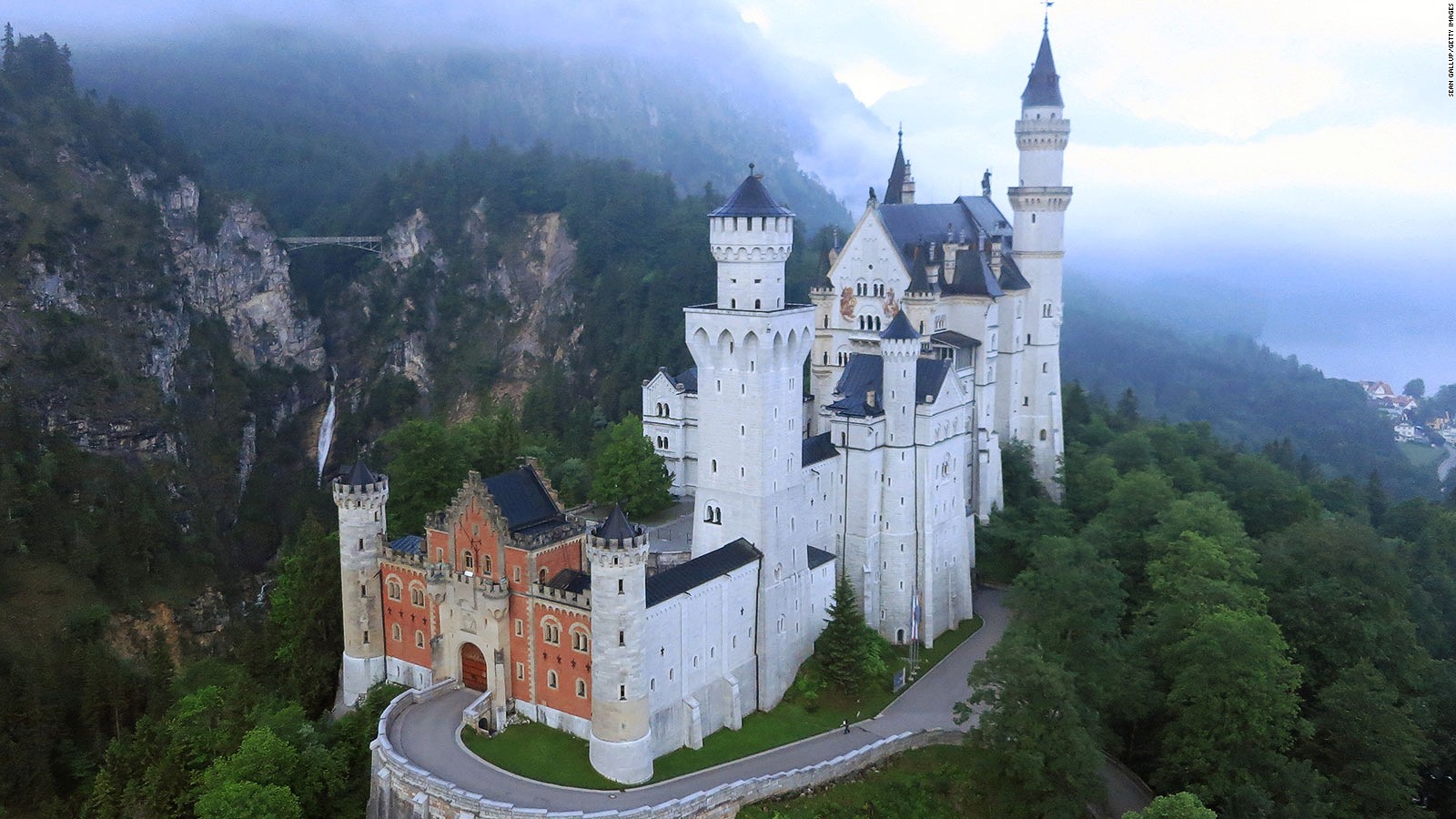
8. Castles
There's
not much fairy tale-telling in German households these days, probably because
we're all too busy reading train timetables and sorting the trash.
But the
country is still dotted with many beautiful castles from bygone days.
8. 城堡
現今在德國家庭裡沒有太多的童話故事可說,大概是因為我們都忙著看火車時刻表跟垃圾分類了吧。
但是一直以來仍有很多美麗的城堡分布在這個國家中。
There are
medieval hilltop fortresses, moated Renaissance castles and 19th-century
Romanesque revival palaces like famous Neuschwanstein in Bavaria
(allegedly an inspiration for Walt Disney's castle).
有中世紀的山中城堡、有護城河的文藝復興城堡和19世紀羅馬式復興宮殿,像是在巴伐利亞很有名的新天鵝堡(據說是華特迪士尼城堡的靈感來源)。
There are
more than 25,000 castles in Germany today (not counting ruined ones still
visitable), and most are home to museums, restaurants and even hotels.
We're
willing to rent some out to vacationers.
Call us
crazy, but we'll even throw in a kitchen sink.
如今在德國有超過2萬5千座城堡(不包括被破壞、但仍可以參觀的),而大部分都成了博物館、餐廳,甚至是飯店。
我們很樂意將某些城堡租借給度假的人。
說我們瘋了,但我們甚至還會附送廚房水槽。
9. Weekend
walks
Here's
another reason to exit the autobahn and abandon the Audi -- Germany's forests,
mountains, rivers and coasts are home to 200,000 kilometers of hiking trails.
From
flowering pastures to high mountains, they cover an incredible variety of
terrain.
9. 周末健走
另一個離開高速公路和拋開奧迪的理由是穿越德國的森林、高山、河流和海岸,長達20萬公里的健行路線。
從遍地開花的牧地到高山,涵蓋了各式各樣美不勝收的地形。
There are
pleasant, leisurely hikes along climb-free trails or physically demanding
scrambles up narrow, winding paths.
Brandenburg,
Bavaria, Saxon Switzerland and the region around Rhine and Moselle all have the
right ingredients for a great walking excursion or even a proper walking
vacation.
有宜人且休閒的健行,沿著輕鬆的登山路線或是需要體力攀爬的狹窄且彎曲路線。
布蘭登堡、巴伐利亞、薩克森瑞士和萊茵河及摩塞爾河周遭的區域都有對於美好的遠足,或甚至是適宜的健行之旅,再好不過的條件。
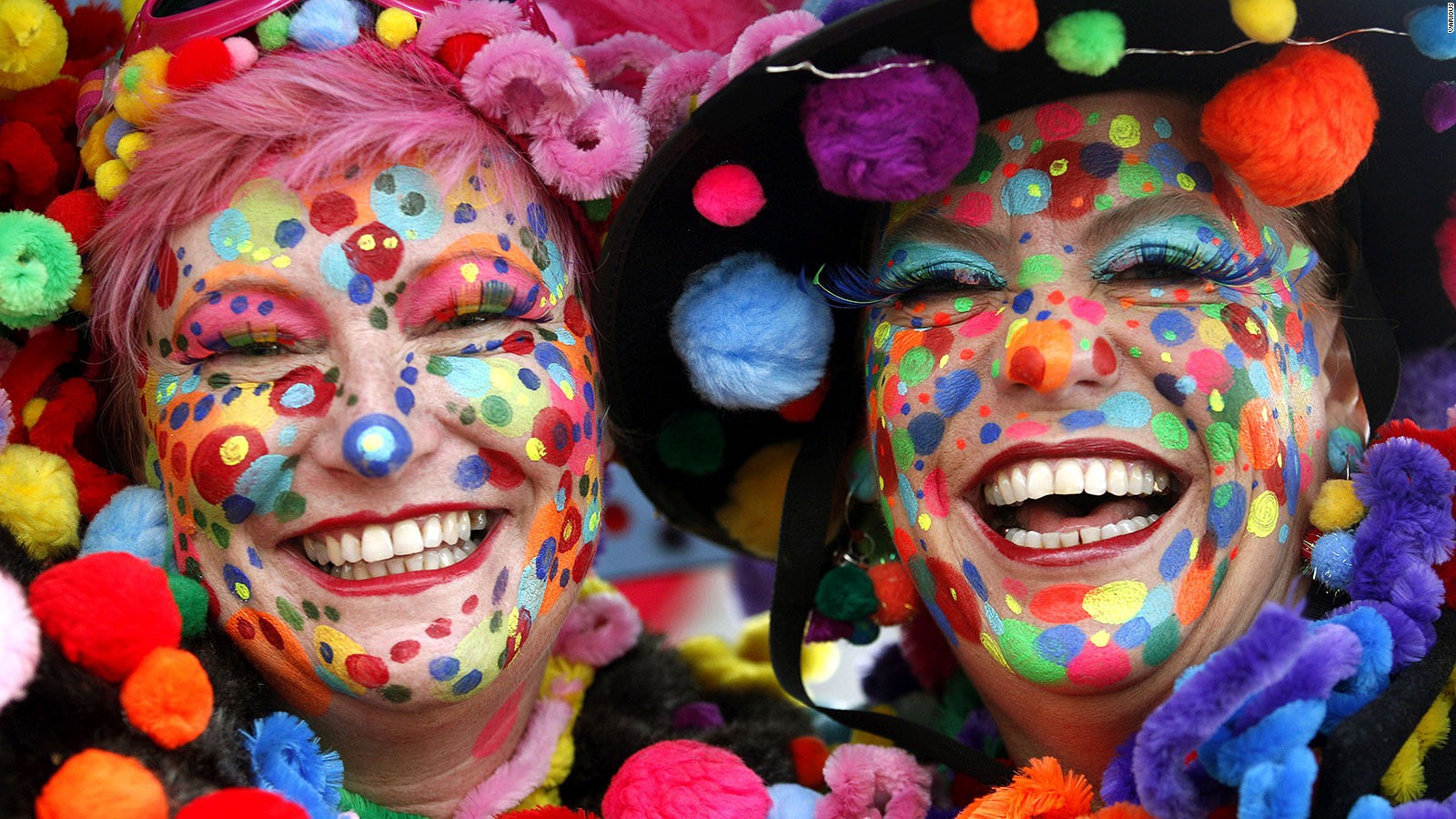
10.
Getting down
The best
carnival is in Rio de Janeiro, right?
Nein! It's
in Germany.
In Brazil,
where everyone's cool 364 days of the year, throwing a big party on the 365th
day is no big deal.
10. 冷靜
最棒的嘉年華是在里約熱內盧,不是嗎?
不是!是在德國。
在巴西,每個人一年裡有364天都很酷,在第365天舉辦一個盛大的派對絕對不成問題。
In
Germany, where everyone is serious 364 days of the year, throwing a big party
is a massive deal.
Northwest
Germany's Rhineland holds an annual "karneval" in the shape of its
Rose Monday parade in which up to two million costumed visitors throng the
streets of Cologne and Dusseldorf.
在德國,每個人一年裡有364天都很嚴肅,所以舉辦一個盛大的派對是一件很重大的事。
在德國西北的萊茵區以玫瑰星期一遊行的形式舉辦年度的嘉年華,至少有2百萬個盛裝打扮的遊客蜂擁至科隆和杜塞道夫的街道。
In
southern Germany, celebrations known as Fasching and Fastnacht see people wearing
traditional masks or dressing up as devils or wild beasts.
Wherever
the celebrations take place, it all ends on Ash Wednesday when everyone gets
back to being serious and efficient, albeit sometimes with a slight hangover.
在德國南方,慶祝儀式稱為狂歡節或謝肉節,會看到很多人戴著傳統的面具或是打扮得像惡魔或是野獸。
不論是在哪舉辦的,都會在聖灰星期三結束,即使有時還會帶點宿醉,但每個人都會回歸嚴肅及有效率的樣子。
11. Making
meta jokes
It's not
that Germans don't know how to tell jokes, it's just that some of the best
jokes take 50 years to tell.
Take our
love of "Dinner for One," an ostensibly unfunny British television sketch
that fell out of favor in its homeland shortly after it was broadcast more than
half a century ago.
11. 講深度笑話
不是德國人不知道怎麼講笑話,只是某些好的笑話講起來要花50年。
拿我們愛的「單人晚餐」來說,一部看似不好笑的英國電視幽默短劇,在英國很快地就不受歡迎,但它在這播了超過半個世紀。
The play,
about an elderly dame and her drunken butler, hangs around the repetition of
the phrase "same procedure as last year," and culminates with a
double entendre punchline that may have been unexpected just after the Berlin
Wall went up, but is now worn thin.
這部戲是關於一個老夫人和她喝醉的管家,經常一起重複著那句「和去年一樣」,而且在建立起柏林圍牆之後,不在預料內的雙關語笑點更是達到極致,但是現在已經不盛行了。
Whether
the play is funny or not doesn't really matter.
The real
humor comes from the reassuring fact that it's been aired in Germany, almost
without exception, every New Year's Eve since 1963.
The same
procedure as last year.
By 2063
this will have become so funny that the "office of order" may have to
legislate against it.
那部戲好不好笑也不是真的那麼重要。
它從1963年的每個新年夜就已經在德國播出了,而且從沒例外,真正的幽默是來自於這個令人欣慰的事實。
每年都一樣。
可能到2063年它會變得很搞笑,以至於秩序局要立法抵制它。
